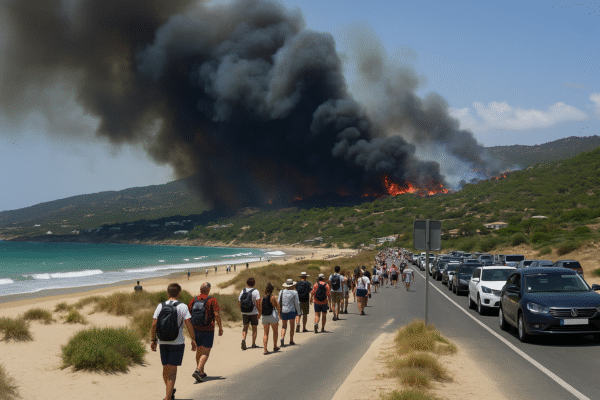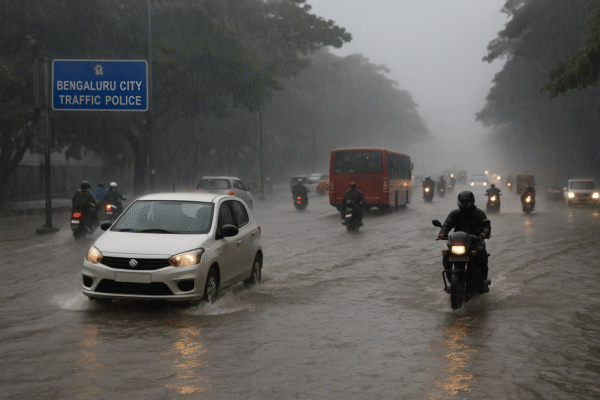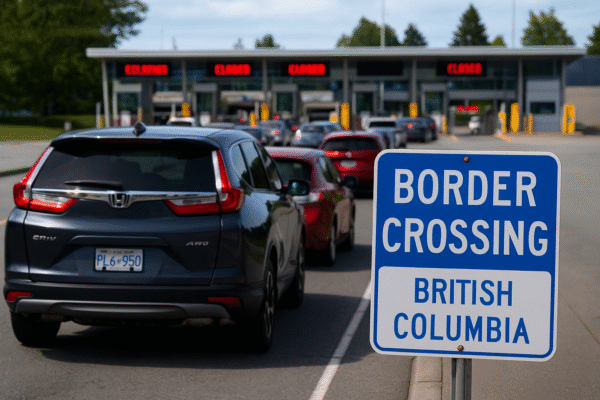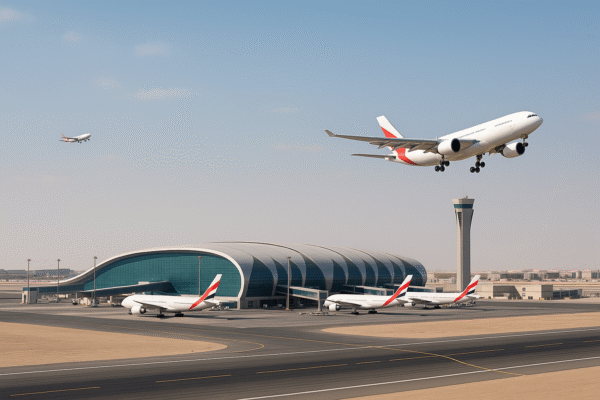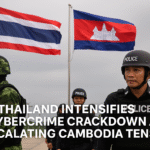As tensions escalate in the Middle East, Thai tourism industry is feeling the tremors. The ongoing Iran–Israel conflict, which erupted into direct military engagement on June 13, 2025, is casting a long shadow over Southeast Asia’s tourism jewel. The Tourism Authority of Thailand (TAT) has issued a cautionary outlook, forecasting a notable downturn in tourist arrivals from Israel and Iran—two key source markets—especially to Bangkok and Phuket.
Sharp Decline in Israeli Arrivals Anticipated
Thailand, which has long been a favored destination among Israeli travelers, is expected to witness a 29% plunge in arrivals from Israel in the third quarter of 2025. TAT has developed two forward-looking scenarios to gauge the scale of disruption:
- Scenario 1: Stabilization by Q3 End
If hostilities ease within the next few months, Thailand could still welcome up to 350,000 Israeli tourists by year-end—reflecting a 24% rise over 2024. However, this is 77,000 fewer than the earlier forecast of 427,000, which projected a 52% surge. - Scenario 2: Prolonged Conflict Until November
Should the conflict continue through late 2025, arrivals could stall at 335,000—a significant 92,000 below the original projection.
Despite the projected Q3 dip, the overall number of Israeli visitors in 2025 is still expected to exceed last year’s figures. This is largely due to robust early-year travel activity; from January to May, Israeli arrivals to Thailand were up by an astonishing 76% year-on-year.
Iranian Tourism Faces Steeper Decline
Iranian arrivals, however, present a grimmer picture. Between January and May 2025, Thailand received 28,259 visitors from Iran—a 2% drop from the same period in 2024. The outlook worsens drastically as Iranian airspace closures force airlines to suspend operations. Mahan Air, the country’s flagship carrier, is set to halt its six weekly direct flights to Bangkok and Phuket by the end of June, effectively removing nearly 1,800 weekly seats.
Without these direct routes, Iranian tourism could collapse, echoing the dramatic 60% plunge recorded in 2018 during U.S. sanctions. This forecasted nosedive in Iranian visitors is expected to impact the second half of 2025 most severely, between July and December.
Global Tensions and Ripple Effects
The intensifying Iran–Israel conflict introduces broader instability into international travel. Southeast Asia, a region traditionally seen as neutral and safe, is now grappling with the geopolitical fallout from thousands of miles away. The Thailand tourism sector, which thrives on long-haul arrivals, may face residual effects such as reduced flight availability, elevated airfares, and heightened traveler anxiety.
Airlines worldwide are reevaluating flight routes, while tourism-dependent economies like Thailand are preparing for a possible shift in global travel trends. Should the conflict persist or widen regionally, other source markets may follow suit in curbing outbound travel to Asia.
Economic Repercussions for Thailand
Israel and Iran have consistently ranked among Thailand’s top-growing tourism markets. While Israeli tourists are drawn to Bangkok’s urban buzz and Phuket’s beaches, Iranian visitors often seek medical tourism, shopping, and cultural experiences. The loss of direct air connectivity and geopolitical risk perception could stall Thailand’s post-pandemic tourism recovery in 2025.
As of mid-2025, tourism contributes roughly 12% to Thailand’s GDP, according to the Ministry of Tourism and Sports. A sharp decline from these two source markets will not only affect airlines and hotels but also smaller tourism businesses—restaurants, retailers, tour operators—particularly in high-traffic areas like Sukhumvit in Bangkok and Patong Beach in Phuket.
TAT’s Mitigation Measures
In response, the Tourism Authority of Thailand is ramping up marketing efforts in other regions to cushion the impact. Strategies include:
- Expanding outreach in emerging markets such as India, Kazakhstan, and Eastern Europe
- Boosting short-haul arrivals from ASEAN neighbors
- Offering promotional incentives to airlines and travel agencies to reprogram tours targeting alternative source markets
TAT is also working with local authorities to maintain Thailand’s image as a safe, stable, and accessible destination, regardless of external geopolitical conflicts.
Lessons in Diversification
The situation reinforces a long-standing lesson for tourism-reliant nations: overdependence on a few markets can be risky. While the surge in early 2025 arrivals offered promise, the current geopolitical context underscores the need for strategic diversification.
Thailand’s ability to pivot quickly will determine how it weathers this storm. Focusing on digital nomads, health and wellness travelers, and regional holidaymakers could help fill the gap left by declining Middle Eastern visitors.
Conclusion
The Iran–Israel conflict is more than a regional crisis—it’s reshaping tourism patterns across the globe. For Thailand, the anticipated drop in Israeli and Iranian visitors could disrupt an otherwise strong year. While some of the shortfall may be offset by surges from other markets, tourism officials must act swiftly to limit the damage. The road ahead calls for resilience, agility, and a renewed commitment to market diversification to futureproof Thailand’s tourism industry.
Sources:
Tourism Authority of Thailand (TAT), Ministry of Tourism and Sports Thailand, Mahan Air, Israeli Ministry of Foreign Affairs, Iran Civil Aviation Organization.
For more travel news like this, keep reading Global Travel Wire




